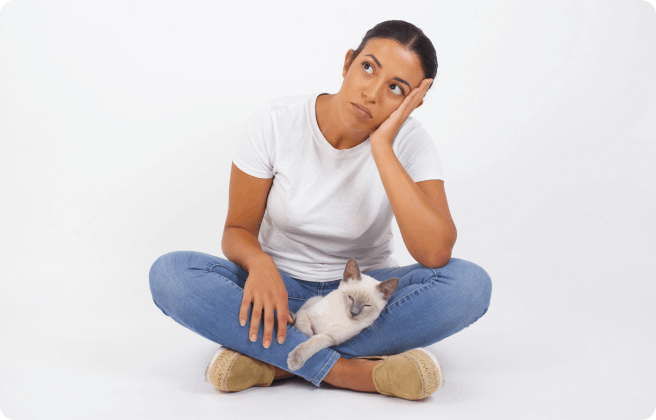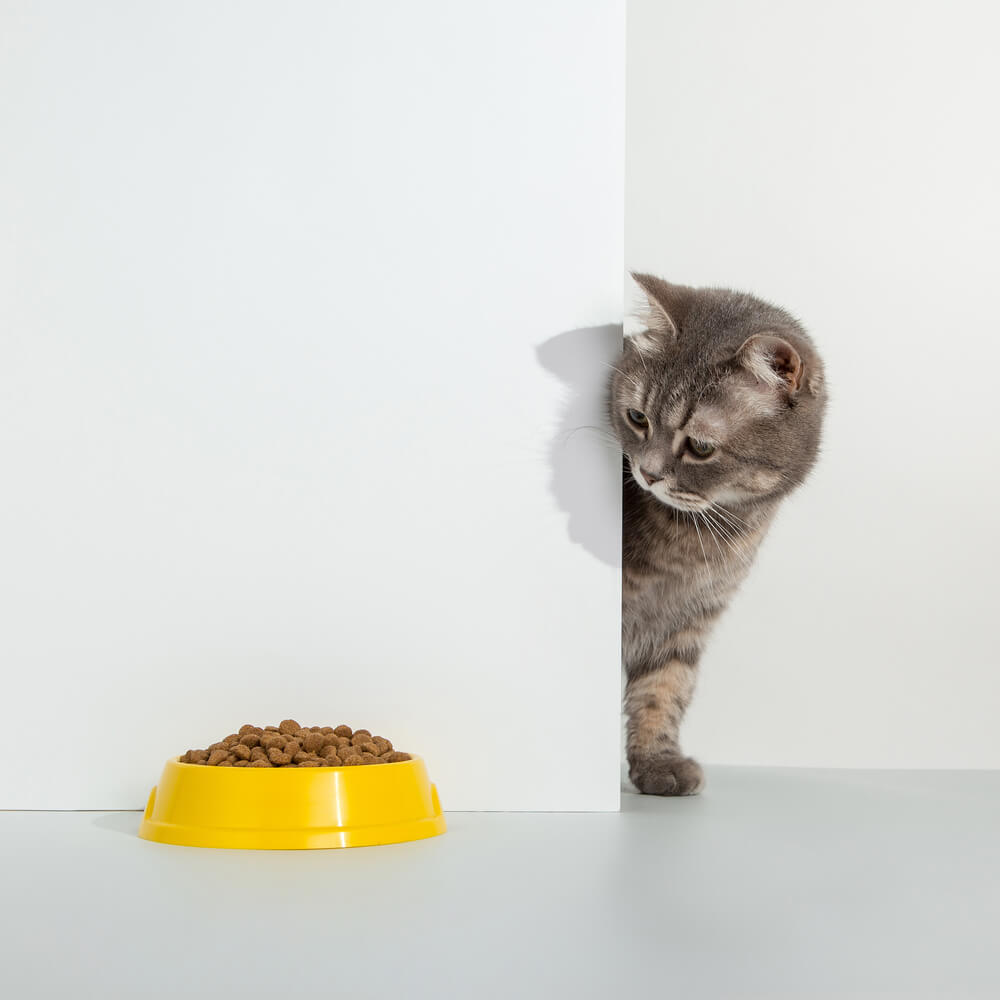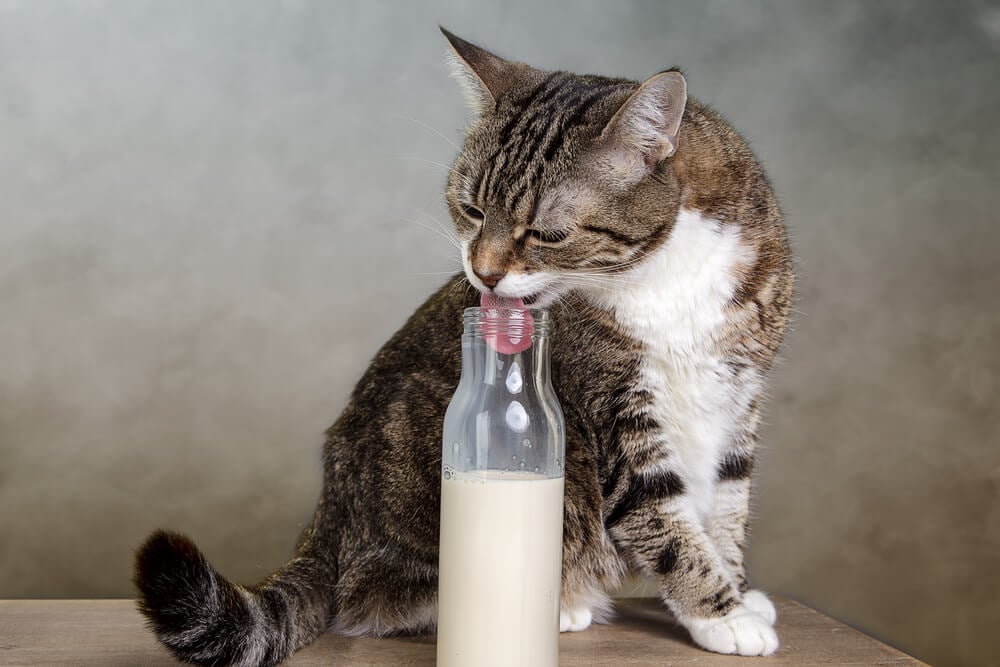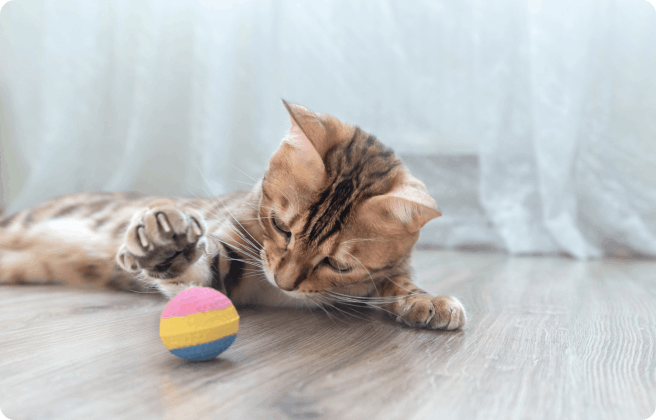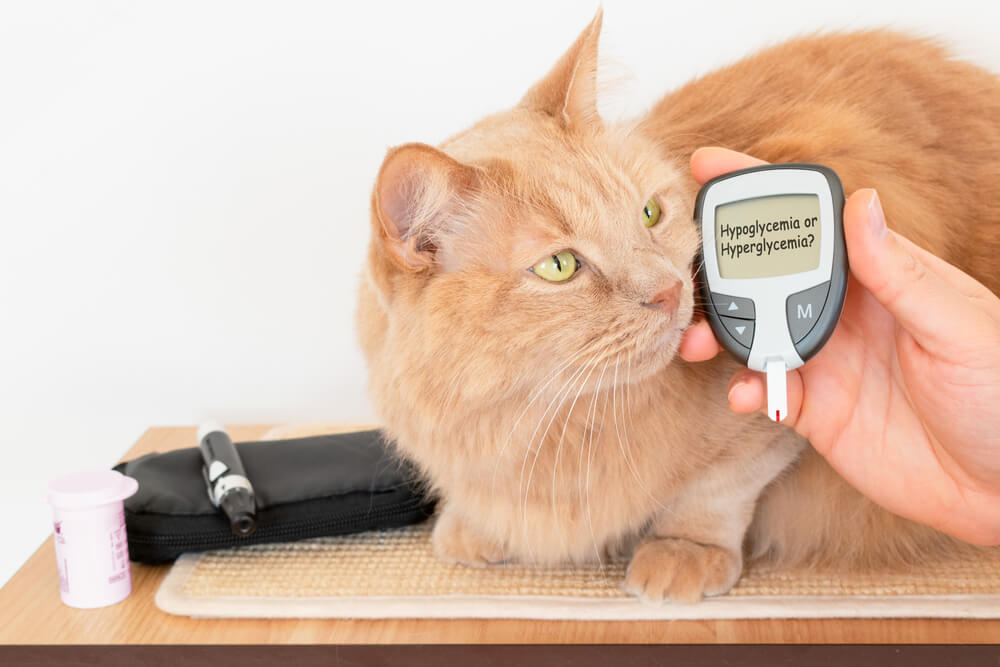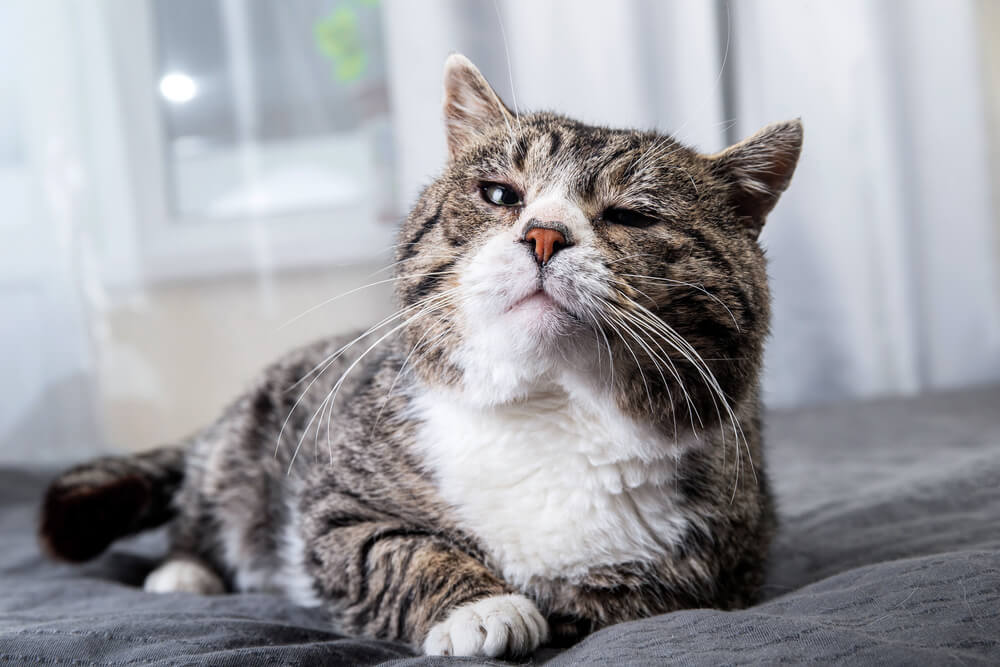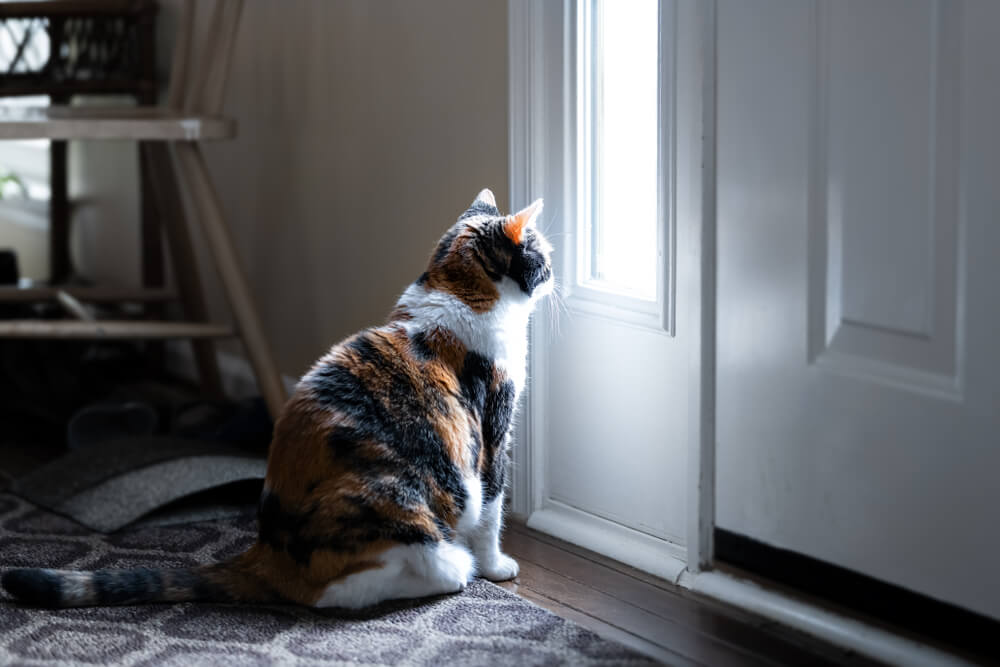
Do cats get lonely? You might think that your independent and sometimes aloof cat prefers solitude. While cats are known for their solitary nature, they have learned to develop bonds with their human companions over time.1 So, does this mean that your cat misses you when you’re gone? It’s quite possible, especially if you’ve been missing for some time.
Although cats are generally more self-reliant than dogs and often relish their alone time, they are not immune to feelings of loneliness. The good news is, this article will explain how to tell if your cat is lonely, and what to do if your cat is lonely.
How long can you leave a cat alone?
You may now be questioning if cats get lonely when you go to work, and does your cat get sad when they are alone? Just because you’re a cat parent, doesn’t mean you need to quit your job. Most cats will be perfectly fine alone while you’re at work.
As long they are equipped with fresh water, a litter tray, or access to the outdoors, they will be content alone until you return. However, if you are planning a long day or an overnight stay, your cat should not be left alone for long periods. In this case, get a pet sitter or loved one to check on them, feed them, and supply fresh water.
However, all cats are unique and have individual needs. This makes it difficult to generalize and provide a specific time frame. Certain factors including the relationship the cat has with their human family, the presence of other animals, and their overall personality will come into play. 2
Can you leave a kitten alone?
Similar to humans, kittens need more regular care and contact, especially when they’re adjusting to a new home. It’s important not to leave kittens alone for more than a couple of hours as they aren’t as self-sufficient as adult cats.
Is it ok to have just one cat?
It’s completely ok to have just one cat. If you provide enough mental, physical, and social stimulation then your cat will be just fine. However, getting another cat is a great option. Keep in mind, cats can be territorial so introducing another cat can take some time and patience. Of course, if you have more than one cat, you might wonder if cats get lonely when another cat dies. Your cat may experience grief and loneliness if a fellow cat sibling or human friend dies, but you can guide them through it.
What do cats do when they are alone?
The secret life of cats? You might have visions of your cat getting up to all sorts of mischief and fun while you’re gone but the reality is, your cat is most likely napping.
Cats sleep around 15 hours a day and this is entirely normal. However, you might want to leave them some things to play with and other forms of stimulation when you are away to avoid boredom or stress.
How can you tell if your cat is lonely?
Destructive behavior
Loneliness can sometimes manifest in destructive behavior in cats. If your cat is tearing up furniture, scratching walls, or engaging in other destructive activities, it could be a sign of loneliness.
Loss or increase in appetite
Changes in appetite can indicate emotional distress in cats. Some lonely cats may eat less or even refuse to eat, while others may overeat as a coping mechanism.
Change in litter box habits
Cats are creatures of habit, so any sudden changes in their litter box behavior could signal distress. This might include urinating or defecating outside the litter box or refusing to use it altogether.
Excessive or minimal self-grooming
Cats often groom themselves as a form of self-comforting. A lonely cat may either groom excessively, leading to bald patches or irritated skin, or neglect grooming altogether, resulting in a disheveled appearance.
Lethargy
A lonely cat may become lethargic and less active than usual. They may spend more time sleeping or lounging around rather than engaging in playful or exploratory behavior.
Clinginess
Conversely, some lonely cats may become excessively clingy and seek constant attention from their owners. They may follow you around the house, vocalize more frequently, or demand physical affection.
What do to if your cat is lonely
Fill food and water bowls
Ensure that your cat has access to fresh food and water at all times. Hunger or thirst can lead to stress and panic. Ensure your cat is equipped with everything they need when you are gone.
Clean the litter box
A clean litter box is essential for your cat’s physical and emotional well-being. Regularly scoop out waste and change the litter to maintain a clean and inviting bathroom area.
Provide entertainment
Keep your cat mentally stimulated with toys, scratching posts, and interactive play sessions. Rotate toys regularly to prevent boredom and encourage exploration.
Offer a cozy bed spot
Create a comfortable and quiet resting area where your cat can retreat when they need some alone time or relaxation.
Arrange cat care
If you’re going to be away for an extended period, arrange for a trusted friend, family member, or pet sitter to check in on your cat and provide companionship.
Bond with your cat when you return
Spend quality time bonding with your cat when you return home. Engage in interactive play, grooming sessions, or simply cuddle up together on the couch.
Establish a routine
Cats thrive on routine, so establish a consistent daily schedule for feeding, playtime, and social interaction. Predictability can help reduce feelings of loneliness and anxiety in your cat.
Most cats are perfectly content being left alone for a few hours, especially if they have access to water, a cozy bed, and some toys to keep them occupied. Upon your return, shower them with attention to reassure them of your presence. However, if you have a cat prone to separation anxiety, you might find this article useful.
We uphold the highest editorial standards when creating the authoritative content pet parents rely on and trust.
Every piece of clinical content on the Cat Food Advisor is reviewed by our certified Veterinary Advisory Board, which consists of licensed veterinarians and medically certified specialists.
Our reviews are completely independent; we are not paid by any pet food company to promote their products favorably. We do not accept money, gifts, samples or other incentives in exchange for special consideration. For more information see our Disclaimer & Disclosure page.




